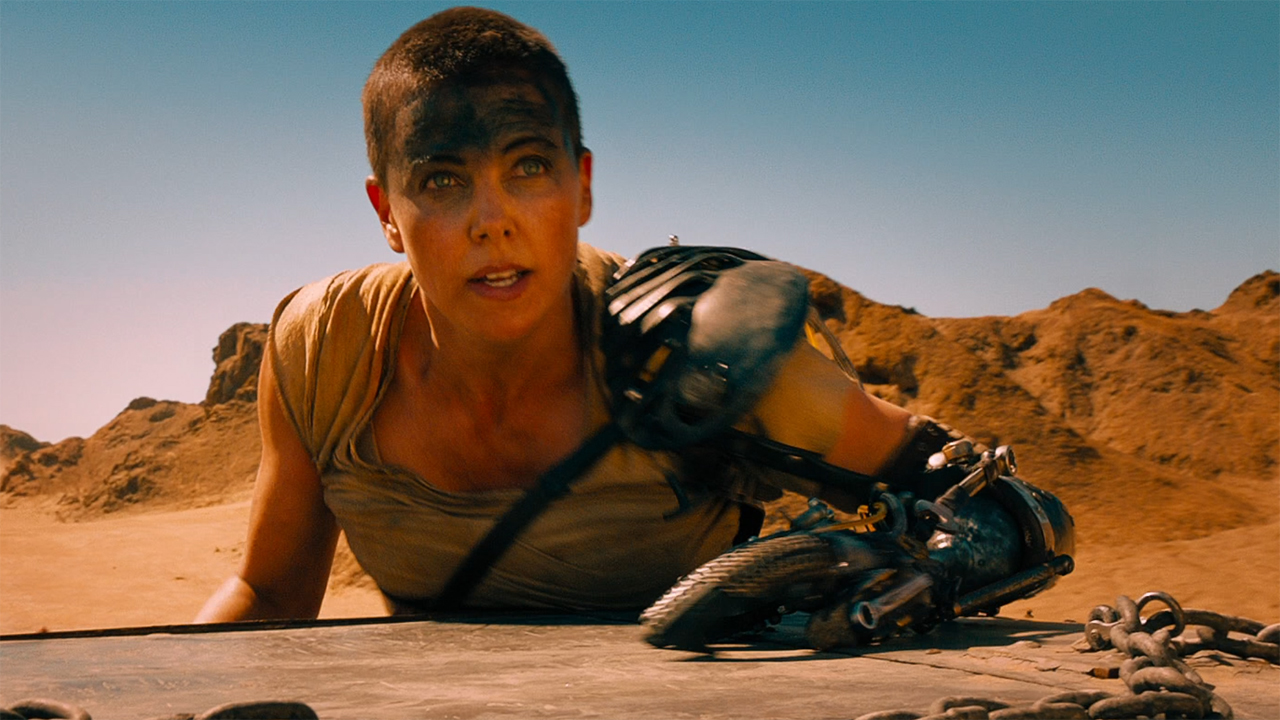For Your Consideration: The Tree Of Life Is The Best Picture Nominee With Something For Everyone

Every weekday from now until the Oscar ceremony we'll be running a For Your Consideration piece on behalf of every Best Picture nominee, arguing why it deserves its nomination or even a win, arguing why it's important, or even pointing out why it doesn't belong at the Oscars at all. Here is Katey with a personal argument on behalf of The Tree of Life.
When we asked every Cinema Blend writer to come up with a piece in support of or against their Best Picture nominee of choice, we weren't looking for a balance of opinions, just a lot of fierce ones. It didn't matter if you were for or against the movie you chose, so long as you had something passionate to say about it. The way it turned out, everyone wrote in favor of their given film except for Mack, who said The Tree of Life was too messy to deserve Best Picture (and nobody wrote about War Horse-- go figure).
The Tree of Life was my favorite film of 2011, but I had no problem reading and editing Mack's piece-- it's always interesting to learn where other people are coming from. But over the course of what I think turned out as a fantastic "For Your Consideration" series-- you can catch up on the whole thing HERE-- a lot of readers spoke up and said they were disappointed that the one film we came out against was The Tree of Life. It was a good reminder to me that, while I spend a lot of my time talking to other critics, most of whom were staunchly pro-ToL, plenty of other people have found themselves sticking up for it among friends who thought it was too weird, too artsy, or didn't even bother to see it at all. A lot of you guys have been making the defense of The Tree of Life that I could have made in this series. So, with just a few hours to go until the Oscars as I write this, here's that defense at last.
The Tree of Life is my pick for Best Picture of all the films nominated and all the films that weren't, this year or last year and probably the year before. It is by far the most ambitious, audacious and moving of all the films in this year's lineup, capturing details about family life that The Descendants and Extremely Loud and Incredibly Close never dreamed of, examining the weight of the past in a way far more personal than Midnight in Paris or War Horse, exploring the possibilities of cinematic storytelling in a way far braver than The Artist or Hugo. It's got the better Brad Pitt performance than Moneyball and the better Jessica Chastain performance than The Help. If you add up all of these other Best Picture nominees-- each of them excellent and accomplished in their own right, of course-- they only begin to approach the amount of truth and beauty and straight-up cinema that The Tree of Life contains.

Sure, there's a lot to muddle through in this film, from a dinosaur stepping on another dinosaur's head to the surreal sight of Jessica Chastain floating in a front yard to the endless Sean Penn sequences, which even Sean Penn seems to think went wrong somewhere. Director Terrence Malick has an omnivorous, insatiable appetite for images on screen, and crams The Tree of Life with far more than most movies could handle, and more than The Tree of Life itself can handle at times. It takes some time to settle down to the rhythm of this movie, and even more time after that to realize that not every moment is going to fit in with the next, and that the usual critical questions to ask of a film-- "What am I seeing, and why?"-- don't really apply here. The Tree of Life obeys no rules, and you imagine it's not even Malick's pure vision, given how many parts of the original cut seem to be missing here.
But the movie has an undeniable, rapturous power when given the chance-- yes, even if you're not entirely sure what's going on. Let the opening scenes confuse you, watching Pitt and Chastain mourn for a child you haven't met yet. Let Sean Penn mope his way through modern Dallas, and try to feel what he's feeling, even though you don't know him yet. Let the images of the "birth of the universe" sequence affect you-- don't try and figure out what they are and what they mean, just watch them like a painting, or an opera without subtitles. By the time the movie settles down in its middle section, telling the lyrical story of a Texas family in the 1950s, you will be open to its impact; even when the story leaps in time or in logic, you feel its meaning, if only by reflecting on your own childhood. As we watch young Jack (played by the marvelous young Hunter McCracken) come of age, in snatches of memory perhaps heightened by time, it's impossible not to reflect on our own-- Malick imbues this section with the details of his own childhood, but it's a universal experience as well.
The Tree of Life asks a lot of moviegoers, no doubt, asking them not just to engage in a loopy and highfalutin' narrative, but to dig into their own personal emotions as well. This doesn't work for a lot of people, and it's not wrong not to like it, or to admit you don't get it. But if you let go just a little, and wait for The Tree of Life to get to the moment that moves you, I promise it will. There is something for everyone in this film, and from Emmanuel Lubezki's cinematography to Alexandre Desplat's score (aided by plenty of classical work) to the breathtaking performances to Malick's out-there vision, there is so much movie in this movie it's hard to take in. The Tree of Life won't win Best Picture, but it will always be the first 2011 film I remember-- the biggest, boldest, and most divisive film that invites everybody in, whether they accept it or not.
Your Daily Blend of Entertainment News
Staff Writer at CinemaBlend

